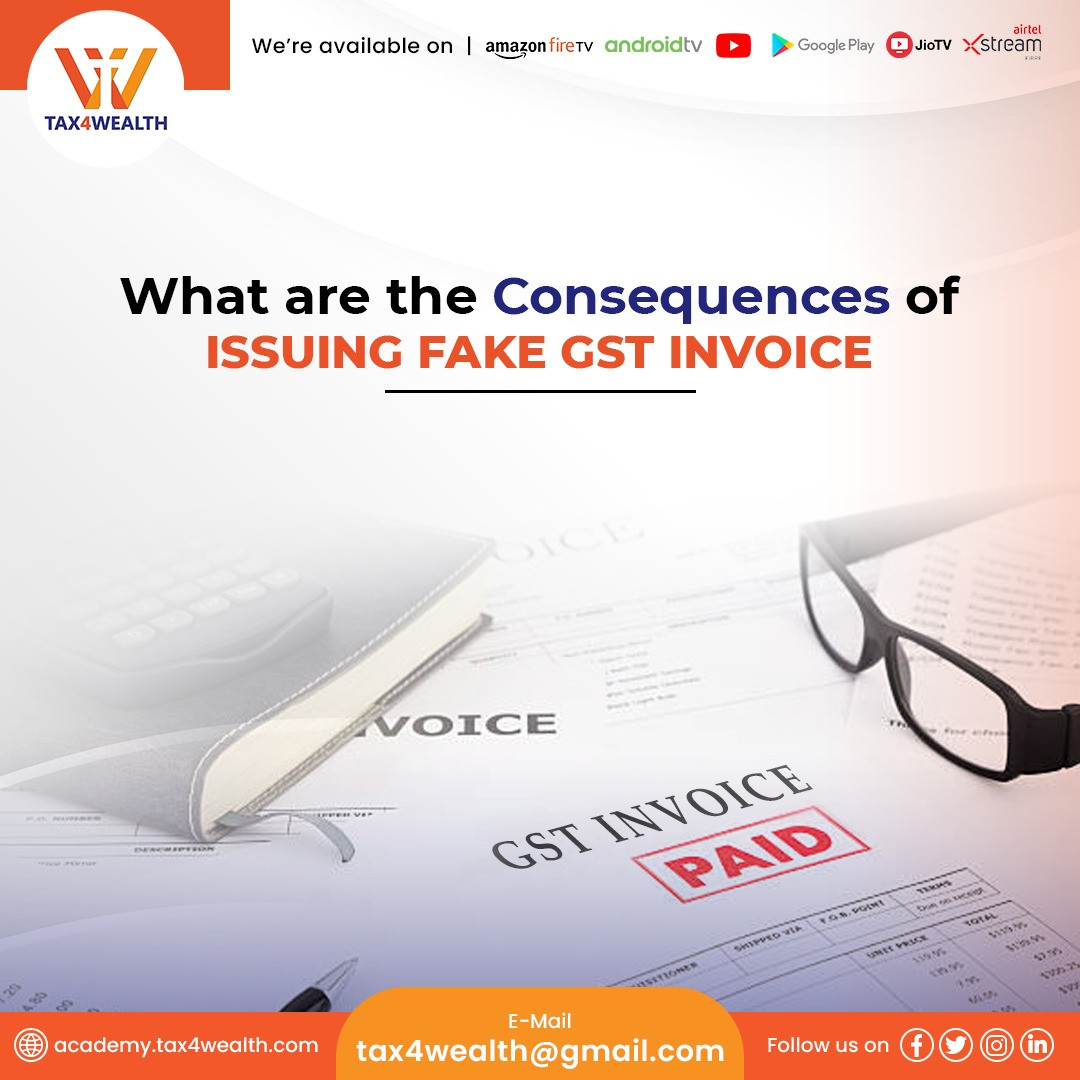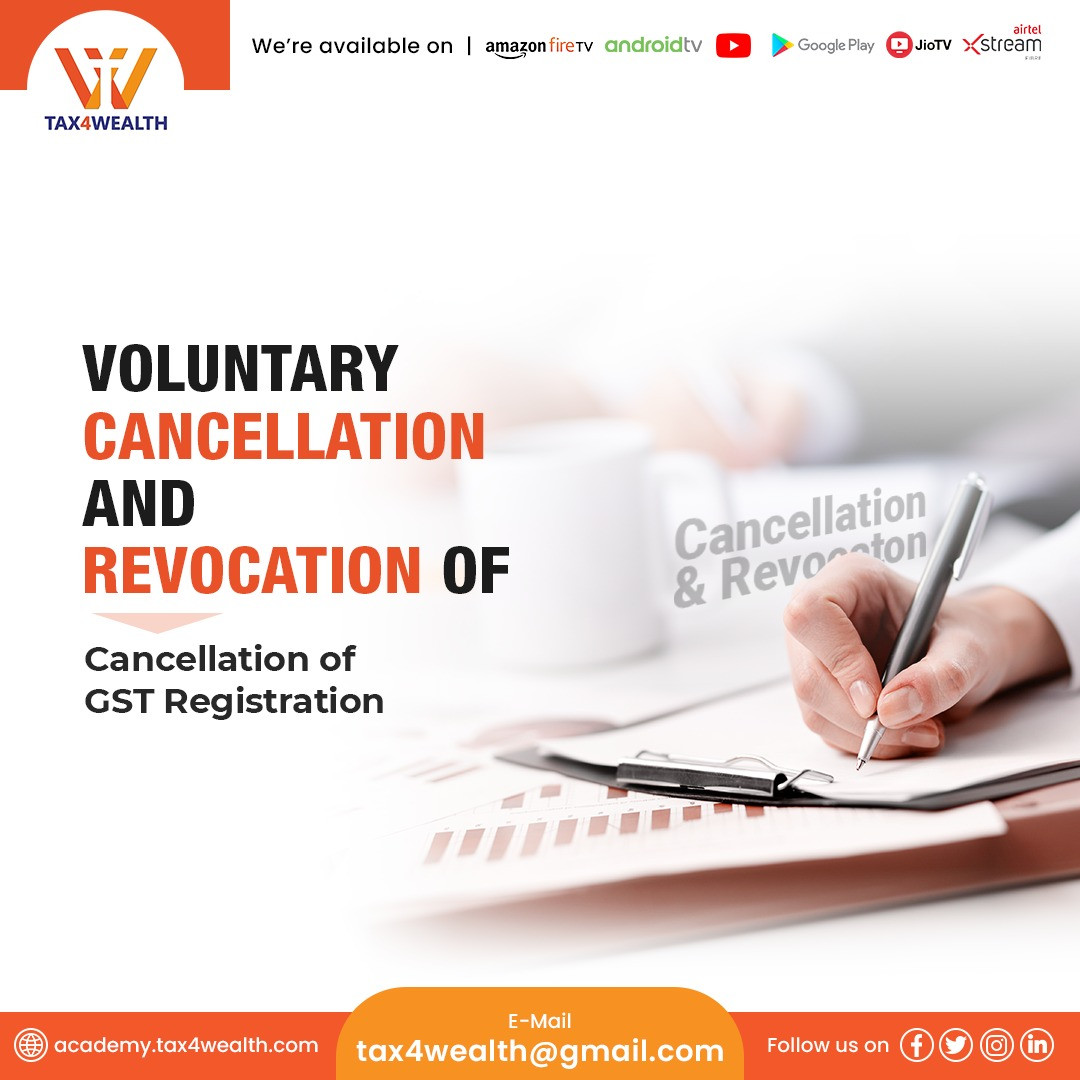
What are the Consequences of issuing Fake GST Invoice
Introduction:
Recently, there are so many cases of fraudulent cases related to input tax credit that has been discovered by the GST authorities. There has been a tendency among the registered suppliers under GST to issue Fake GST invoices and claim input tax credit in dishonest manner.
This is mainly done for the reduction in net liability of GST. Tax evasion is very common these days.
Generally, a fake GST invoice issued by dishonest suppliers who originally are not engaged in any kind of business activity. False invoices are issued without supplying actual goods and/or services to a person registered under GST.
Basically, the GST charged on the aforesaid fake invoices are never paid nor intended to be payable in future. One of the most convenient malpractices that are being adopted by taxpayers is to create fake or dummy firms for issuance of fake invoices and accordingly create illegal input tax credit.
The said practices of using fake invoice can cause a wrongful impact and great loss to the taxation system of government of India.
Malpractices of fake GST invoice:
Under the provisions of CGST Act, a tax invoice is issued at the time or prior to the supply of goods and/or services by the supplier. However, it has been noticed that some suppliers do not use or issue invoice for the supplies made to avoid the payment of taxes. In that case, the supply will be called as illegal supply as it has been done without charging as well as paying GST.
Additionally, it came to notice of the GST council on several instances that there are many suppliers who skillfully avoid paying tax or try to lower the tax rate. This can be better analyzed with the help of an example.
For example, to disclose a branded good as non branded good to lower the tax rate is one such malpractice. Apart from that another standard that is being adopted by the taxpayer is to register vague firms on the GST portal and accordingly produce fake GST invoice without actually supplying the goods. This is done to fraudulently claim input tax credit.
However, under the provisions of GST, there are certain conditions on the part of the recipient that has to be fulfilled so that he can claim the input tax credit. Hence, it is illegal to claim input tax credit without actual supply of goods.
Penalties for issuing a fake GST invoice:
To tackle the above-mentioned issues, The GST council and Income Tax Authorities have invoked some important provisions to deal with such fraudulent activities. The details of the same are provided below;
Under Section 122 and 132 of the CGST/SGST Act, the offences that will lead to penalties, prosecution and criminal proceeding initiation are listed. The offences include the following;
- Make a supply without issuing an invoice or issuing a false or incorrect invoice
- Issuance of an invoice without an actual supply
- To avail and utilize input tax credit without actual supply of goods and/or services
- To obtain a fraudulent refund
- Tax evasion by availing input tax credit fraudulently or obtain a refund
- Providing false information of financial records or showing false documents/accounts with an intention to avoid payment of tax
The punishment scheme for imprisonment under section 132 of the CGST Act, are provided below;
|
Offence |
Punishment |
|
For evasion of taxes exceeding Rs. 5 crore or repeating offender of amounting Rs. 250 lakh |
5 years imprisonment along with fine |
|
For evasion of taxes between Rs. 2 crore and Rs.5 crore |
3 years imprisonment along with fine |
|
For tax evasion between Rs.1 crore and Rs.2 crore |
1 year imprisonment along with fine |
|
For providing false and tampered records and obstructing officer |
6 months imprisonment along with fine |
Similarly, under Section 122 is equivalent to evaded tax amount or refund or input tax credit obtained fraudulently or an amount of Rs. 10,000, whichever is higher. Moreover, all of the offences related to tax evasion not exceeding Rs.5 crore are bailable and considered as non-cognizable. However, in case the tax evasion exceeds Rs.5 crore are non-bailable and cognizable.
Other Measures Taken by Government:
After noticing a large number of fraud cases and fake invoices under GST, the Government comes has up with lot of measures and preparedness to strengthen the matching system of the invoice where a recipient of goods may claim for input tax credit basing on the corresponding supplies as per the evidence provided by the supplier.
With the introduction of the new return system under GST and e-invoicing and that became effective from 1st April 2021, has added a new measure to curb the tax evasion.
Apart from that, it has become very comfortable for the GST authorities to ensure the implementation of compliances and track the fake and false claims made for input tax credit. However, the GST enforcement authorities have to look upon more effective measures both B2B and B2C transactions. It is to be noted that e-invoicing is compulsory for B2B transaction with effect from 1st April 2020.
Bottom Line /Conclusion:
Taxpayers generally look for various loopholes in the system of GST and accordingly take undue advantage of the same with an intention for tax evasion. Since there is an alarming rate of cases of issuing fake GST invoices, it can be said that it is the need of hour for the GST authorities to take more such effective measures to reduce such cases.
To stop the issuance of fake GST invoices, proper mechanism must be adopted to match the invoices issued.
However, different measures are being discussed and implemented by the Government of India to reduce such cases related to manipulation done by the taxpayer in the books of account under GST and to identify such taxpayers who are fraudulently claiming wrong input tax credit.
It is also the duty of the taxpayers not do involve any sort of fraudulent activity or issue a fake invoice, otherwise they will be penalized accordingly under section 132 and 122 of the CGST Act.
For more info, Visit us at: https://academy.tax4wealth.com/blog
Related News
No comments yet, Be the first to comment.













